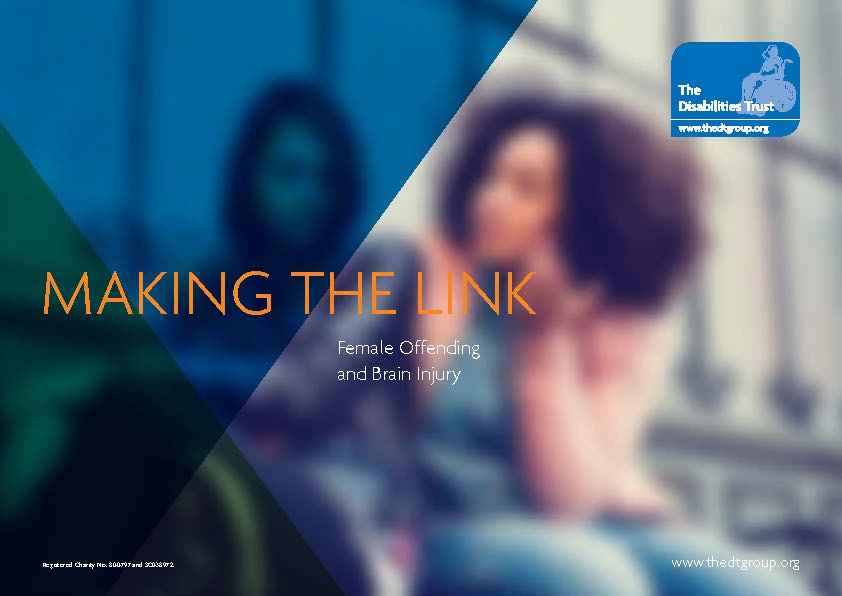The Disabilities Trust, in collaboration with Royal Holloway, University of London, has launched the results of the first study of its kind into brain injury in female offenders. The report ‘Making the link: Female offenders and brain injury’ recommends a support pathway be put in place to manage the health, cognitive and behavioural issues which may impact on likelihood of reoffending.
A follow-on study by The Disabilities Trust, examined the prevalence of brain injury within HMP/YOI Drake hall and found that of the 173 women they screened using the Brain Injury Screening Index, 64% reported a history indicative of a brain injury and of those, 96% reported a history indicative of a traumatic brain injury.
It is widely acknowledged that traumatic brain injury (TBI) is over-represented in prison populations, with the likelihood of: increased risk of violence, earlier age of first incarceration, a greater number of convictions, reconviction, mental health problems and a greater number of attempts at suicide.
The needs of somebody in prison with TBI are likely to be complex, and the lack of understanding and identification of a brain injury results in a higher risk of custody and reoffending.
In the first study of its kind, carried out from 2016 to 2018, and funded by Barrow Cadbury Trust and The Pilgrim Trust, The Disabilities Trust introduced a Brain Injury Linkworker Service in HMP/YOI Drake Hall to provide specialist support to women with a history of acquired and traumatic brain injury. The linkworkers’ role is to develop a sustainable pathway of support for rehabilitation and help prisoners to manage the transition between custody and the community.
From the women supported through the service there were 196 reports of severe blows to the head and distressingly 62% reported they had sustained their brain injury through domestic violence. Nearly half (47%) of the women seen had been in an adult prison five or more times and 33% sustained their first injury prior to their first offence. The trauma in the lives of the women with TBI is evident in the accounts provided by interview participants in the report. Some of the accounts and case studies presented in the independent evaluation written by Royal Holloway, University London are distressing to read.
It was established that a female Linkworker was sensitive to the gender-specific needs of the service users. The women who were seen by the Linkworker experienced improved mood and self-esteem, and enhanced confidence and positivity; key factors that have been previously identified as being essential for a woman to engage in rehabilitative programmes.
The Linkworker service also offered practical guidance for staff working with women with a brain injury, and alleviated pressure from other service provision (e.g. mental health). The report concluded that a Brain Injury Linkworker service provides a strong framework which will benefit offenders and prisons to identify and manage brain injury.
As a result of these findings The Disabilities Trust calls for:
- The inclusion of brain injury screening as a routine part of the induction health assessment on entry to prison or probation services
- All prison and probation staff to receive basic brain injury awareness training
- The provision of brain injury support; similar to the Brain Injury Linkworker (BLI), in prisons and probation settings
- Assurance that brain injury support would be aligned with gender-informed practice
- Further research to be conducted to examine the potential effect of brain injury on re-offending behaviour, how effective neurorehabilitation can contribute towards the reduction of recidivism and the role of early intervention approaches.
Read the report ‘Making the link: Female offenders and brain injury’

